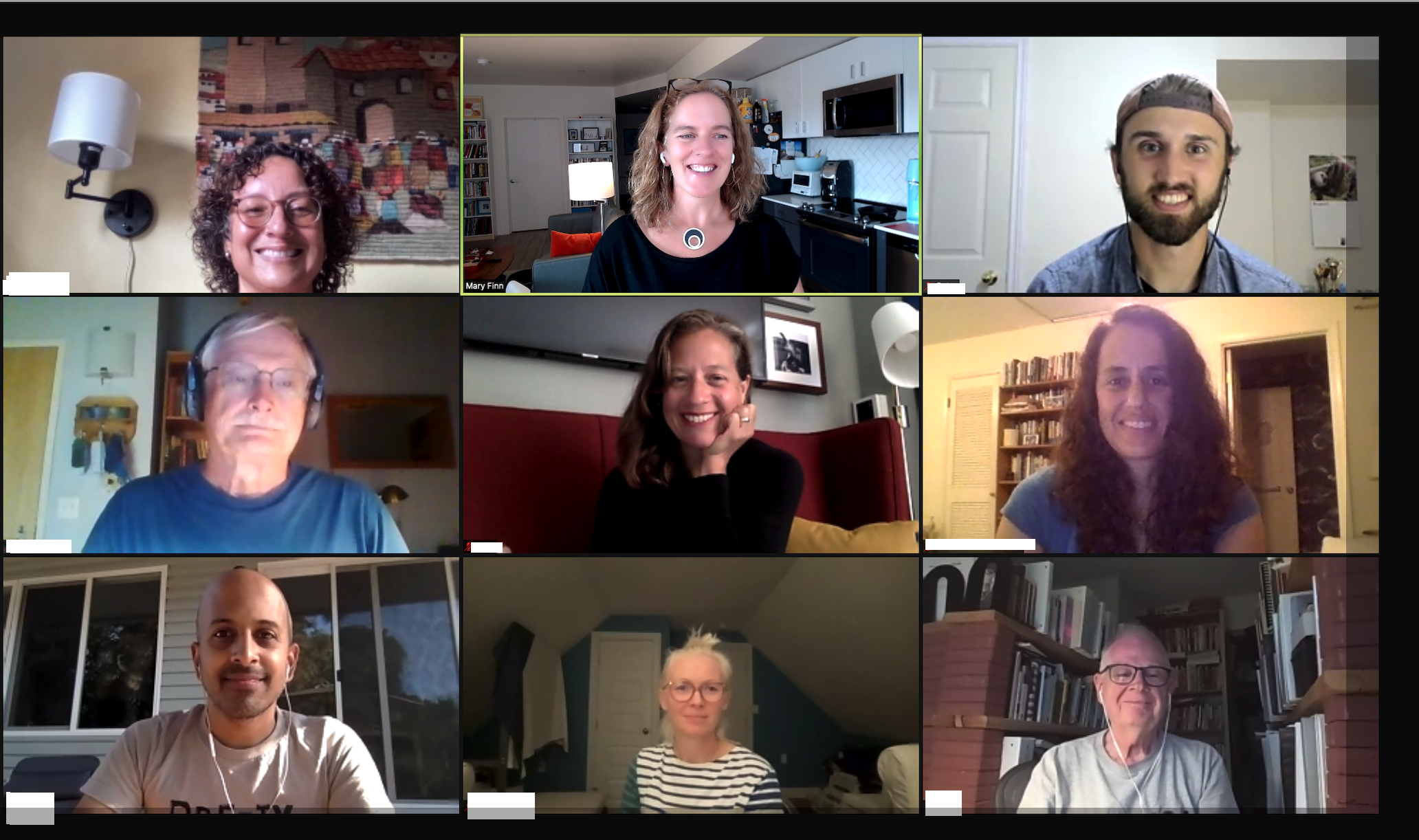What is feminist power? Who decides? Lysistrata & Spike Lee’s Chi-Raq
The inaugural Premise student cohort joined us from Canada, Chicago, MA, DC, Oregon, and the Bay Area. The group was intergenerational, including recent college grads, retirees, and everyone in between.
What is Feminist Power? Who Decides?
Aristophanes’ Lysistrata and Spike Lee’s Chi-Raq
The inaugural Premise course kicked off on Sunday, August 8th and out of the gate, the conversation was thought-provoking, layered, and rich.
The mission at Premise is to create a space where people who may not normally meet one another can have meaningful and inquiry-driven conversations. We talk about life’s big questions and the books and films that make us think. Premise is intergenerational and intersectional by design.
The students brought beginners’ eyes to the book and film. Some students in the course had never read a Greek drama or comedy, others had never seen a Spike Lee film. Prior experience with an author or work isn’t required to participate at Premise.
The students arrived having read the play and watched the film and they were ready to talk about complex themes of feminism and the legal and cultural constraints on women’s power in history and modern life. The conversation also centered on whether or not a male author and filmmaker can adequately represent a female perspective or portray feminist power adequately.
Premise class conversation is dynamic and provoking. We like to think about the conversation as if we are making improv jazz together- where every student has a responsibility to be inclusive, self-aware, and inquiry-driven.
Our class conversation, like all Premise courses, was purposeful, facilitated, and wide-ranging. In each class, we use the Premise student guidelines to frame the discussion and explicitly provide the norms for the conversation.
Premise is a place where thinking happens in real-time and where students are encouraged to change their minds and think anew.
And, we have fun!
Student Questions Lead The Way
Students in the inaugural Premise course brought a range of questions to class and we were able to dig into most of them during the conversation.
Students Wondered:
Do you think either text adequately addressed issues of consent and/or sexual violence?
Why hasn’t a sex strike like this actually happened - on the scale, in particular, imagined in Chi’Raq - and if it were - actually - to happen - what would happen?
Are the texts suggesting that withholding sex is the most powerful power that women have?
What do the texts say about women’s relationship to each other and men’s relationship to each other - both felt that each was defined in opposition to each other, but not as much in community with each other
Is sex a sufficient motivator for this premise? After all, no one has ever died from a lack of sex. Right?
The narratives are mostly told from (and focus on) the female perspective/experience, but both of them were written by men. Do people find this problematic? What additional responsibility does a person have when telling stories from a perspective they aren’t directly familiar with? Especially with subjects dealing with power imbalances.
Also, is Lysistrata the most perfect example of male writing ever?
How does a sex strike, getting something for agreeing to sex differ from prostitution, and how much of sex is part of an exchange? How does a woman's control of her body raise larger issues in society?
Why are humans so resistant to movements that are likely to benefit the most of humankind?
Does Chi Raq even begin to approach questions of feminism? Can we even get there when the other potentially more important questions posed by the film need answers?
What are the differences between "masculine" and "feminine" conceptions of power?
How likely is it that a stoppage as promoted by Lysistrata could ever take place?




